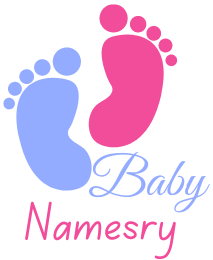12 Types of People You Should Not Be Friends With

Friendship is one of the most valuable aspects of life, but not all friendships are created equal. While having good friends is essential for emotional support and personal growth, it’s also important to recognize that not every person you encounter should become a friend. Some people bring negativity, drama, or toxicity into your life, and maintaining these relationships can have a detrimental effect on your mental and emotional well-being.
We all deserve friends who uplift, support, and encourage us, not those who drain our energy or undermine our happiness. Here are 12 types of people you should avoid befriending, and why you should keep your distance from them.
1. The Chronic Complainer
Everyone has moments when they vent, but the chronic complainer never seems to have anything positive to say. They constantly find fault in every situation, person, and event, and often focus on what’s wrong rather than looking for solutions.
Why You Should Avoid Them:
- Negative energy: Being around a chronic complainer can bring you down, making you feel exhausted and drained.
- Lack of gratitude: They rarely appreciate the good things in life, which can make you feel unappreciated or discouraged.
The Impact:
Spending time with someone who is constantly unhappy or complaining about everything can negatively affect your mindset and happiness. True friends are there to support and inspire you—not drag you into a negative spiral.
2. The Drama Queen/King
This person thrives on drama and chaos. Whether it’s making mountains out of molehills, stirring up conflicts, or blowing things out of proportion, the drama queen or king loves to be the center of attention, often at the expense of those around them.
Why You Should Avoid Them:
- Constant turmoil: Their life is always in a state of crisis, and they often drag you into their emotional rollercoaster.
- Lack of stability: They provide no emotional security, and being around them feels unpredictable and exhausting.
The Impact:
Friendship should be a source of comfort and calm, not chaos. A drama-filled friendship can lead to unnecessary stress and emotional fatigue. Stay away from people who are always seeking attention and creating unnecessary problems.
You May Like: 10 Commandments of Marriage According to the Happiest Couples Alive
3. The User
The user is only interested in the friendship as long as they can get something out of it. They will ask for favors, money, time, and emotional support, but when you need help, they are nowhere to be found.
Why You Should Avoid Them:
- One-sided relationships: They only care about their own needs and rarely offer anything in return.
- Emotional drain: You give and give, but they never reciprocate, leaving you feeling depleted.
The Impact:
A friendship should be built on mutual care and respect. If you feel like you’re constantly being used, it’s time to cut ties. Healthy friendships require balance and reciprocity.
4. The Narcissist
A narcissist is someone who is completely self-centered and often lacks empathy for others. They believe they are superior to everyone around them and expect constant admiration and attention. Narcissists rarely show genuine interest in your feelings or needs.
Why You Should Avoid Them:
- No emotional connection: They only care about themselves and rarely make an effort to understand or support you.
- Manipulative behavior: Narcissists often use guilt or charm to get what they want, leaving you feeling used and unimportant.
The Impact:
A narcissistic friend can be emotionally exhausting and detrimental to your self-esteem. True friendships are built on equality, trust, and mutual respect, none of which a narcissist can offer.
Don’t Miss: Cute Couples Goals You Should Have in 2025
5. The Negative Influence
The negative influence is someone who encourages unhealthy behaviors, poor decisions, or bad habits. Whether it’s persuading you to skip responsibilities, break the law, or engage in risky behavior, they pull you down to their level.
Why You Should Avoid Them:
- Poor decision-making: They encourage you to make choices that don’t align with your best interests.
- Lack of support for your growth: They may secretly resent your success and try to sabotage your progress.
The Impact:
A true friend supports your personal growth and success, not drags you down or encourages self-destructive behaviors. Stay away from people who hold you back from being your best self.
6. The Jealous Friend
Jealousy is toxic in any relationship, and a jealous friend can make you feel uncomfortable or insecure about your own achievements and happiness. Instead of celebrating your successes, they may act passive-aggressively or undermine your accomplishments.
Why You Should Avoid Them:
- Constant competition: They view you as competition rather than a partner in friendship.
- Sabotaging behavior: They may subtly try to bring you down when something good happens to you.
The Impact:
Friendship should feel safe and supportive. If your friend is more focused on being envious of you than being happy for you, it’s a sign they’re not truly supportive.
You May Like: When To Stop Giving Second Chances (10 Red Flags To Watch)
7. The Flaky Friend
This person is constantly canceling plans or failing to follow through on commitments. They make promises they don’t keep, leaving you feeling unreliable or unimportant.
Why You Should Avoid Them:
- Lack of reliability: You can never count on them when you need them most.
- Inconsistency: You never know whether they will show up or let you down.
The Impact:
Trust and consistency are fundamental in any relationship. A flaky friend doesn’t respect your time or feelings, and constantly being let down can lead to frustration and disappointment.
8. The Critic
While constructive feedback can be helpful, the critic is constantly judgmental, pointing out your flaws, mistakes, and shortcomings. They rarely acknowledge your strengths and make you feel inadequate or inferior.
Why You Should Avoid Them:
- Constant judgment: They never seem to be satisfied with your choices or achievements.
- Negative reinforcement: They make you question your decisions, even when you know you’re doing your best.
The Impact:
A true friend encourages you, motivates you, and helps you grow. If your friend is constantly tearing you down, it can erode your self-confidence and overall happiness.
Don’t Miss: How to Rebuild Trust After Betrayal: 10 Proven Steps That Actually Work in 2025
9. The One Who Disrespects Boundaries
Boundaries are essential in any relationship. The boundary-pusher consistently disrespects your personal space, privacy, or emotional limits. Whether it’s constantly asking personal questions, showing up uninvited, or demanding your time, they ignore your needs.
Why You Should Avoid Them:
- Disrespectful behavior: They don’t listen when you set boundaries, making you feel uncomfortable.
- Lack of respect: They value their own desires over your comfort and needs.
The Impact:
A healthy friendship thrives on mutual respect for boundaries. If someone disregards your limits, they are not treating you with the respect you deserve.
10. The Gossiper
The gossiper constantly talks behind people’s backs, including yours. They may share your private information or talk negatively about others, causing drama in your social circle.
Why You Should Avoid Them:
- Breaches of trust: If they talk behind others’ backs, they will likely talk behind yours too.
- Creates division: Gossiping creates distrust and tensions within social groups.
The Impact:
Trust is a cornerstone of friendship. If someone is gossiping about others, it’s only a matter of time before they start gossiping about you. A true friend keeps your confidences safe.
You May Like: Are You Growing Apart? 7 Signs It’s Happening and What You Need to Do NOW!
11. The One Who Never Apologizes
Everyone makes mistakes, but the person who never apologizes or takes responsibility for their actions is a toxic friend. They may refuse to acknowledge when they’ve hurt you, leaving you feeling unheard or invalidated.
Why You Should Avoid Them:
- Lack of accountability: They never own up to their actions or how they hurt you.
- Ego-driven: They believe their actions are always justified, regardless of the impact on you.
The Impact:
Apologies and forgiveness are essential in any relationship. Without them, resentment can build, and the emotional bond will weaken over time. If someone can’t take accountability for their behavior, the relationship will be one-sided and damaging.
12. The Energy Drainer
Also known as an emotional vampire, this person constantly drains your energy with their constant need for attention, validation, or support. While it’s natural to need help sometimes, the energy drainer relies on you for their emotional well-being, leaving you feeling exhausted.
Why You Should Avoid Them:
- One-sided emotional labor: They never seem to consider your feelings and always expect you to provide emotional support.
- No reciprocation: They don’t offer emotional support in return.
The Impact:
Healthy friendships are based on mutual support and understanding. If someone is constantly draining your energy without offering any emotional reciprocity, the relationship becomes burdensome.
Final Thoughts: Protect Your Peace
Not all friendships are meant to last, and recognizing toxic patterns is a critical step in maintaining a healthy social life. True friendships should be nurturing, positive, and based on mutual respect. It’s important to surround yourself with people who uplift you, respect your boundaries, and offer emotional support when needed.
By recognizing the types of people who bring negativity or harm into your life, you can protect your peace and ensure that your friendships enhance your overall well-being.
FAQs: Types of People You Should Not Be Friends With
- How do I handle a toxic friend?
Address the issue calmly and directly. Set boundaries, and if the behavior continues, consider distancing yourself from the relationship.
- How can I identify if I am the toxic friend?
Reflect on your behavior. Are you constantly negative, disrespectful of boundaries, or critical? Self-awareness is key to improving your friendships.
- Should I confront a friend who gossips about others?
Yes, but approach the conversation with empathy. Let them know how their gossip makes you feel and set clear boundaries.
- How do I know when to let go of a friendship?
If the friendship is consistently draining, disrespectful, or harmful, it may be time to move on. Prioritize your mental and emotional health.
- Can I salvage a friendship with a narcissist?
It’s difficult, as narcissists often lack empathy and self-awareness. Setting firm boundaries and limiting your emotional investment may help, but sometimes it’s best to let go.






